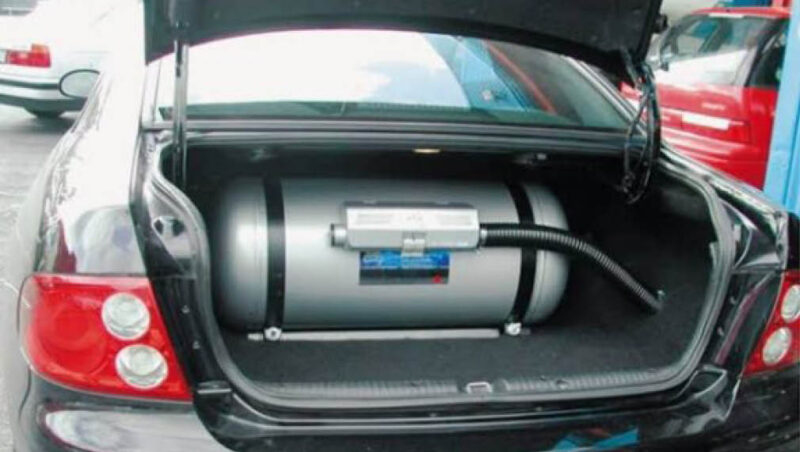The Presidential Compressed Natural Gas Initiative (PCNGI) is set to deploy 150 new CNG refueling stations across Nigeria over the next 18 months. This development aims to expand access to cleaner and more affordable fuel for Nigerians amid ongoing efforts to improve energy sustainability and reduce transportation costs.
Michael Oluwagbemi, the Chief Executive of PCNGI, shared this plan during a press briefing at the Presidential Villa in Abuja on Monday. He noted that both government bodies and private sector players are working together to roll out the new infrastructure nationwide.
“To further bolster this base infrastructure, we have coopted our private sector partners to deploy over 150 new refueling locations in the next 18 months,” he said.
According to Oluwagbemi, the Nigerian National Petroleum Company (NNPC) has already completed 12 CNG stations, with 8 more scheduled to go live before the end of the current quarter. In addition, NNPC has secured approval to build 100 additional stations over the next 18 to 24 months.
Private energy companies are also playing key roles. NIPCO, for example, has brought in equipment for 32 new sites, with 22 already in operation and 8 under construction. Bovas is currently constructing 8 stations, while AY Shafa has completed one and is building nine more. Other contributors include Ibile Oil and Gas, MBH, and Mikano, which are investing in both daughter and mother CNG stations.
Oluwagbemi also addressed public concerns following an explosion at a CNG station in Benin City, Edo State, in October 2023. The blast, which injured three people, including one with an eye injury, was reportedly caused by illegal activities involving uncertified gas cylinders.
“At this point let me be clear, that the SOLE safety incident that occurred in Benin last year was a result of economic saboteurs engaged in illegal fabrication of CNG cylinders and were arrested by the police,” Oluwagbemi stated.
He added that new safety systems are being implemented, including the Natural Gas Vehicle Monitoring System (NGVMS), to prevent future accidents. This system will ensure that only certified vehicles with approved tanks can access refueling stations.
“With NGVMS in place that incident will be avoided as only properly labelled & accredited vehicles with certified tanks will be refueled. The necessary steps to launch NGVMS are ongoing, and we expect it to be in place by year end,” he said.
The PCNGI chief also noted the importance of maintaining high safety standards. He said efforts to enforce regulatory compliance began in March 2024 in collaboration with agencies such as the Standards Organisation of Nigeria (SON) and the National Automotive Design and Development Council (NADDC).
“We won’t relent in ensuring the safety of lives and investments of participants in the sector, this was why we prioritized regulatory standards issuance from the get go in March 2024 and continue to work with these agencies especially SON & NADDC. We enjoin all participants to ensure full compliance with regulatory requirements on safety and security,” he said.










